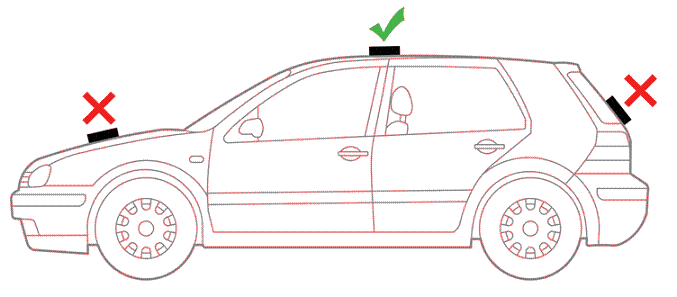MSc thesis project proposal
GPS antenna placement
Project outside the university
CiTG facultyA GPS antenna performs differently when it is attached to an object to be tracked, rather than when it is located in free space, far away from any other object.
An object to be tracked with GPS is typically a car/truck, a train or vessel (lots of metal), a human/animal (lots of water), or a man-made structure (e.g. concrete). GPS positioning depends in principle on line-of-sight ranging, from satellites directly to the receiver, but other reflected (multipath) signals may be received from neighbouring objects, which distort the ranging process, and thereby introducing errors and biases into the position solution.
Though in principle omni-directional, a GPS antenna ideally is sensitive to only signals from positive elevations (looking up from the antenna). Ideal antennas do not exist (e.g. finite dimension), and attaching it to an object changes the antenna characteristics (antenna gain pattern (signal strength), phase center (signal delay) due to coupling and radio propagation in the near field changes). An initial, limited, study regarding automotive applications is reported in [1]. Aircraft applications are reported in [2].
For this proposed research a substantial amount of empirical/practical research is anticipated, but also modelling (simulating) and predicting the behaviour are part of it. The focus is on low-cost patch-type of GPS-antennas for tracking purposes.
References
-
M.K. Alsliety and D.N. Aloi (2007). A study of ground-plane level and vehicle-level radiation patterns of GPS antenna in telematics applications. IEEE Antennas and Wireless Propagation Letters. Vol. 6, pp. 130-133.
-
B.R. Rao (2013). Ground plane, aircraft fuselage, and other platform effects on GPS antennas. Chapter 5 in GPS/GNSS Antennas (Rao, Kunysz, Fante and McDonald). Artech House. pp. 279- 308.
Contact
prof.dr. Alexander Yarovoy
Microwave Sensing, Signals and Systems Group
Department of Microelectronics
Last modified: 2019-11-20
